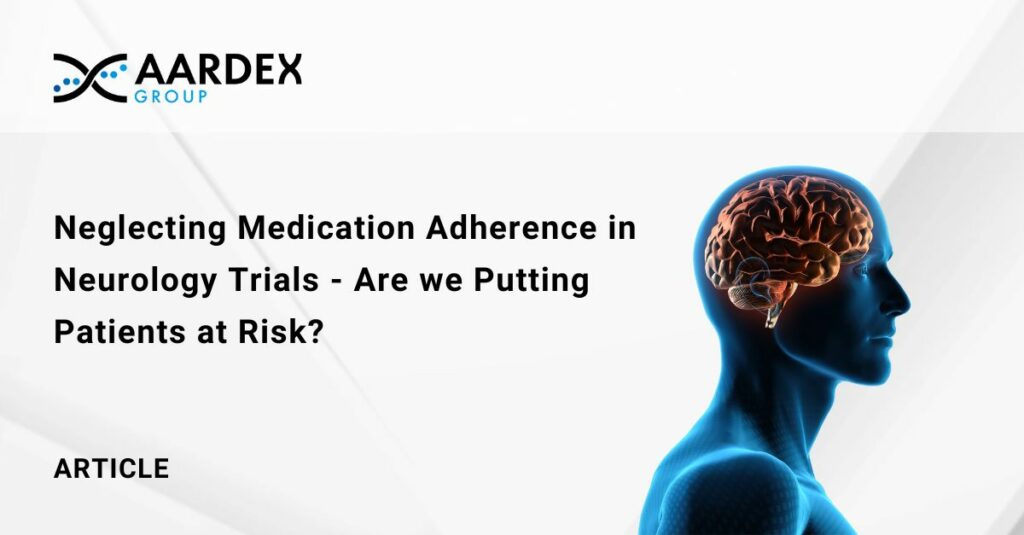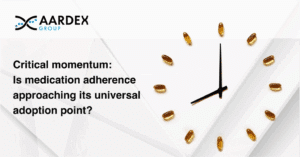The list of Neurological conditions is considerable, with epilepsy, Alzheimer’s disease, dementia, stroke, migraine, multiple sclerosis, Parkinson’s disease, neuro infections, and brain tumors, all attributed to this category of disease.
Hundreds of millions of people worldwide are affected by neurological disorders, indeed, there are over 12.2 million new strokes each year [1], and over 50 million people have epilepsy worldwide. It is estimated that there are 47.5 million people with dementia, with 7.7 million new cases every year, with Alzheimer’s disease contributing to 60–70% of those cases globally. [2]
Neurological conditions are, by their very definition, challenging diseases to manage from a patient adherence perspective, as sufferers can feel a range of symptoms from disorientation and weakness to paralysis, an apparent loss of consciousness, and episodes of unresponsiveness.
One study presents the stark reality of the challenge, reporting a high prevalence of medication non-adherence among patients with neurological disorders. The rate of non-adherence varied among different neurological conditions, with 69.2% of Alzheimer’s disease, 66.7% of epilepsy, 62.1% of Parkinson’s disease, and 48.7% of stroke patients found non-adherent. The overall prevalence of medication non-adherence among patients with neurological disorders was 59.2% [3]
The Gap in Measuring Adherence in Neurology Trials
Given the critical nature of the drugs required to manage these conditions, it would not be unreasonable to expect that greater attention is given to the efficacy of these drugs at the clinical trial stage.
However, in a recent study published in ClinicalTrials.gov, only 4.3% of trials have used a digital measure of medication adherence [4]. The paper investigated 6,763 neurology trials between 2010-2021, with only 19 using a digital measurement of medication adherence, meaning 6,744 trials have not used a measure or a biased measure of adherence.
So, given the weight of evidence to suggest poor adherence is a real issue, particularly for this cohort of patients whose neurological condition makes medication compliance even more complicated, why is it that more isn’t being done?
Is it perhaps that the problem is perceived to be too big to handle? Is ignorance really bliss? Or is legacy thinking so ingrained in the psyche that any change is too frightening to contemplate? Maybe it is simply the case that there is a lack of awareness that better options are available – in which case, we need to work harder here at AARDEX Group.
Of course, some level of non-adherence is expected and desired in drug trials even, as we should look to replicate real-life scenarios, but wildly out-of-control levels are unacceptable. And nothing is being put in place right now to put that right. Some studies are prepared to accept an 80% adherence rate – are we really suggesting that missing 20% of the dose is acceptable? Not at AARDEX.
If further evidence of the scale of the problem were required, we would point to the recent approval of Leqembi (lecanemab) for Alzheimer’s, where significant safety concerns have been raised around the prevalence of side effects.[5] 13% of participants experienced brain swelling, and 17% of participants had brain bleeding. We argue that if the adherence isn’t being measured effectively, these potentially catastrophic side effects could result from overdosing. Given the condition of the patient group, under-dosing should be a real concern, and if adherence isn’t measured effectively, that risk is transferred to the wider patient population when market approval is made.
How can we be sure that the dose is optimal? In all reality, and as we have discussed before, there is a possibility that the dose has been increased to mitigate non-adherence. That being the case, the dose could probably be lowered, leading to lower costs, fewer side effects, and longer persistence.
The Need for Progress in Neurology and Adherence
Neurological conditions are complex and challenging when it comes to patient adherence management. In our view, there should be a heightened awareness of the particular issues at play and an even greater imperative to ensure the monitoring is more robust and clinical interventions more data-led where non-adherence is present. The use of digital adherence in neurology trials has only grown by 3.5% in ten years, with 80% appearing to be the benchmark. Surely, we owe it to this particularly vulnerable group to do better?



